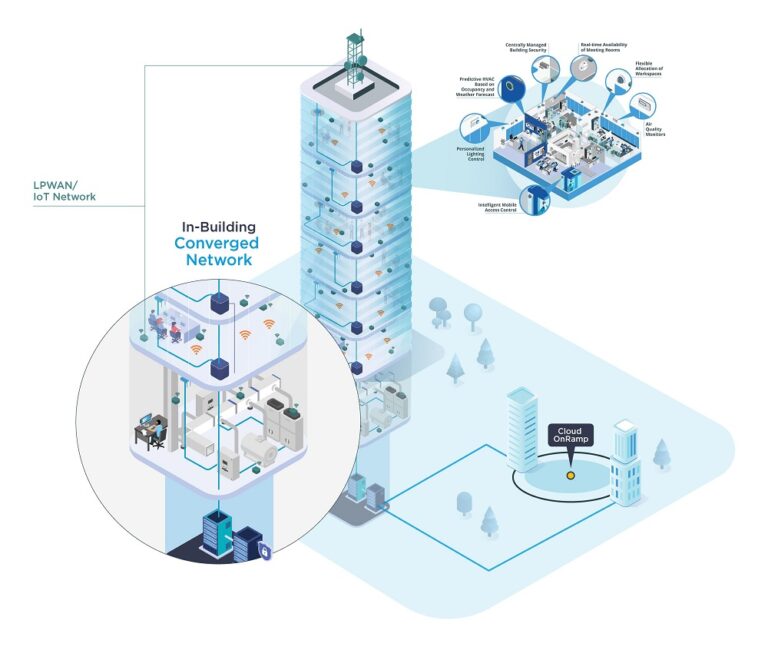In today's hyper-connected world, managed IoT routers have become essential for businesses and consumers alike. These devices offer advanced capabilities to streamline connectivity and improve network performance. If you're exploring the potential of managed IoT routers, this comprehensive guide will provide you with all the information you need to make an informed decision.
From their benefits to their features, and everything in between, understanding managed IoT routers can significantly enhance your network infrastructure. As more devices become interconnected, the importance of reliable and secure network management cannot be overstated.
This article will delve into the advantages of managed IoT routers, their key functionalities, and how they contribute to modern networking needs. Whether you're a tech enthusiast or a business owner, this guide will equip you with the knowledge to leverage these devices effectively.
Read also:Olloflix The Ultimate Streaming Platform For Movie And Series Enthusiasts
Table of Contents
- Introduction to Managed IoT Routers
- Benefits of Managed IoT Routers
- Key Features of Managed IoT Routers
- How Managed IoT Routers Work
- Security Aspects of Managed IoT Routers
- Comparison with Traditional Routers
- Use Cases for Managed IoT Routers
- Choosing the Right Managed IoT Router
- Future of Managed IoT Routers
- Conclusion and Next Steps
Introduction to Managed IoT Routers
Managed IoT routers are advanced networking devices designed to handle the growing demands of the Internet of Things (IoT). These routers offer centralized control and management, enabling users to monitor and optimize their networks efficiently.
With the proliferation of IoT devices, managing connectivity has become more complex. Managed IoT routers address this challenge by providing robust solutions for connectivity, security, and scalability. They are ideal for businesses looking to enhance their network infrastructure and ensure seamless communication between devices.
Why Managed IoT Routers Are Essential
As IoT adoption continues to grow, the need for reliable and secure network management becomes increasingly critical. Managed IoT routers offer a comprehensive solution by:
- Providing centralized control over multiple devices
- Enhancing network performance through advanced routing algorithms
- Offering scalable solutions for growing networks
Benefits of Managed IoT Routers
The benefits of managed IoT routers extend beyond basic connectivity. These devices offer a range of advantages that cater to modern networking requirements.
Improved Network Performance
Managed IoT routers are equipped with advanced technologies that optimize network performance. By leveraging intelligent routing protocols and traffic management capabilities, these devices ensure that data flows smoothly and efficiently.
Enhanced Security
Security is a top priority in the IoT ecosystem. Managed IoT routers incorporate robust security features, such as firewalls, intrusion detection systems, and encryption protocols, to protect networks from potential threats.
Read also:Is Rob Lowe A Trump Supporter Exploring The Political Landscape
Scalability and Flexibility
As businesses expand, their network requirements also grow. Managed IoT routers are designed to scale effortlessly, accommodating additional devices and bandwidth without compromising performance.
Key Features of Managed IoT Routers
Managed IoT routers come packed with features that make them indispensable for modern networks. Below are some of the standout features:
Centralized Management
One of the key features of managed IoT routers is centralized management. Users can monitor and control all connected devices from a single interface, simplifying network administration.
Advanced Traffic Management
These routers offer advanced traffic management capabilities, allowing users to prioritize critical applications and ensure smooth data flow. This feature is particularly beneficial for businesses that rely on real-time communication.
Remote Access and Monitoring
With managed IoT routers, users can access and monitor their networks remotely. This capability is crucial for businesses with multiple locations or teams working from different sites.
How Managed IoT Routers Work
Managed IoT routers function by leveraging a combination of hardware and software technologies. They use advanced algorithms to route data efficiently and securely across networks.
Hardware Components
The hardware components of managed IoT routers include processors, memory, and network interfaces. These components work together to handle high volumes of data and ensure reliable connectivity.
Software Features
On the software side, managed IoT routers are equipped with firmware that enables advanced functionalities such as traffic shaping, security protocols, and network diagnostics.
Security Aspects of Managed IoT Routers
Security is a critical consideration when deploying IoT devices. Managed IoT routers play a vital role in safeguarding networks against potential threats.
Firewall Protection
Managed IoT routers incorporate firewall protection to filter incoming and outgoing traffic, blocking unauthorized access and malicious activities.
Encryption Protocols
Data encryption is another key security feature of managed IoT routers. By encrypting data transmitted over the network, these devices ensure that sensitive information remains secure.
Intrusion Detection Systems
Intrusion detection systems (IDS) are integrated into managed IoT routers to monitor network activity and detect potential security breaches. This proactive approach helps prevent attacks before they cause damage.
Comparison with Traditional Routers
While traditional routers serve basic networking needs, managed IoT routers offer superior capabilities tailored to the demands of modern networks.
Advanced Features
Managed IoT routers provide advanced features such as centralized management, traffic prioritization, and remote access, which are often lacking in traditional routers.
Scalability
Traditional routers may struggle to scale with growing network demands. In contrast, managed IoT routers are designed to accommodate expansion without compromising performance.
Security
Security is a significant differentiator between managed IoT routers and traditional routers. Managed IoT routers offer comprehensive security features, making them a safer choice for IoT deployments.
Use Cases for Managed IoT Routers
Managed IoT routers are versatile devices with applications across various industries. Here are some common use cases:
Smart Homes
In smart homes, managed IoT routers ensure seamless connectivity between devices such as smart thermostats, security cameras, and lighting systems.
Industrial IoT
Industrial IoT deployments rely on managed IoT routers to connect sensors, machines, and other devices, enabling real-time monitoring and control.
Healthcare
In healthcare, managed IoT routers facilitate secure and reliable communication between medical devices, ensuring patient safety and data privacy.
Choosing the Right Managed IoT Router
Selecting the right managed IoT router is crucial for maximizing its benefits. Consider the following factors when making your decision:
Performance Requirements
Assess your network's performance requirements, including bandwidth, latency, and throughput, to choose a router that meets your needs.
Security Features
Ensure that the router offers robust security features, such as firewalls, encryption, and intrusion detection systems, to protect your network.
Scalability
Look for a router that can scale with your growing network, accommodating additional devices and bandwidth as needed.
Future of Managed IoT Routers
The future of managed IoT routers looks promising, with advancements in technology driving innovation. Expect to see improvements in:
Artificial Intelligence
AI-powered managed IoT routers will offer enhanced capabilities, such as predictive maintenance and automated traffic management.
5G Integration
As 5G networks become more widespread, managed IoT routers will integrate this technology to deliver faster and more reliable connectivity.
Edge Computing
Edge computing capabilities will be incorporated into managed IoT routers, enabling real-time data processing and reducing latency.
Conclusion and Next Steps
Managed IoT routers are indispensable tools for modern networking, offering a range of benefits and features that cater to diverse needs. From improved performance and enhanced security to scalability and flexibility, these devices provide comprehensive solutions for IoT deployments.
To take advantage of managed IoT routers, consider exploring the options available and selecting a device that aligns with your requirements. Share your thoughts in the comments below or explore other articles on our site to learn more about IoT and networking technologies.
Remember, staying informed and up-to-date with the latest advancements in technology is key to making the most of managed IoT routers and other networking solutions.


